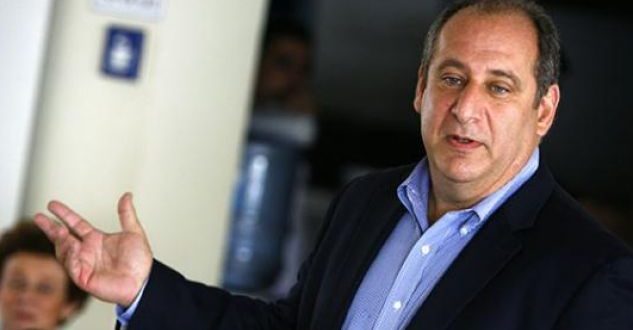Russia’s bloody hands in Sudan
By David L. Phillips
Russia’s Wagner Group precipitated Sudan’s destructive civil war by assisting both the Rapid Support Forces (RSF) of Sudanese General Mohammed Dagalo aka “Hemeti” and General Abdel Fattah al-Burhan, the military commander of Sudan’s Armed Forces (SAF). Both did business with Yevgeny Prigozhin, Wagner’s head and confidant of Vladimir Putin, who expanded his wealth and power by providing them with arms in exchange for lucrative mining concessions.
When Hemeti and I met at his home six months ago over a meal of roast camel, he was transparent that the RSF had provided gold to Wagner in exchange for weapons and military training. He claimed to have discontinued the RSF’s joint venture with Wagner, but recent events suggest that tying off Wagner is easier said than done.
I also pressed Burhan to cease security cooperation with Wagner to which he replied: “Will you provide me with F16s”?
Prigozhin’s business model involves playing one military faction against the other. Wagner has ties with the SAA going back to 2017 when Omar al-Bashir was Sudan’s President. Bashir signed a series of deals with the Russian government, which included “concession agreements on gold mining between Russian company M Invest and the Sudanese Ministry of Minerals”. The agreements also enshrined security cooperation, providing terms for Russia to set up a coveted warm water naval base at Port Sudan on the Red Sea.
After Bashir was overthrown in 2019, Wagner continued to collaborate with both Hemeti and Burhan. It worked most closely with Hemeti who served as its proxy for mining for gold, exploring for uranium, and supplying mercenaries to the restive region of Darfur. Its military assistance included armored vehicles, surface-to-air missiles, artillery, and mortars, drawn from Wagner stocks in the Central African Republic (CAR).
Sudanese gold mined in Hemeti’s home region of East Darfur was transported through the CAR, where exports are unrecorded in Sudanese official trade data. From there, the gold was moved to Dubai in the United Arab Emirates. Russian and UAE officials worked together hand-in-glove.
Prigozhin was too shrewd to bet on one horse. While expanding operations with the RSF, he also deepened relations with Burhan. Prigozhin reached out to Burhan’s officer corps, which has close links to Bashir’s National Congress Party (NCP) as well as the Islamist movement. Prigozhin also curried favor by assisting the crackdown of peaceful pro-democracy demonstrators in Khartoum. Wagner’s media network disparaged the Forces for Freedom and Change as anti-Islamic, Israeli stooges, and the vanguard of America’s influence.
Wagner doesn’t care which Sudanese faction it works with. The US Treasury says Wagner conducted “paramilitary operations, support for preserving authoritarian regimes, and exploitation of natural resources”. In 2018, Wagner had about 100 men actively training Sudanese military forces. The number grew to about 500, mainly based in the southwest near Um Dafuq, close to Sudan’s border with the CAR.
By 2021, Wagner had intensified its partnership with Hemeti in exchange for expanded access to Sudan’s extensive gold mines. In response, Burhan deepened cooperation with Egypt.
The Meroe Gold company, owned by the Russian company M Invest, brought Russian experts and technology to help develop Sudan’s gold industry. A CNN investigation in July 2020 documented at least 16 military flights carrying gold from Sudan to a Russian military base in Syria, generating proceeds to support the war in Ukraine. The Treasury Department determined that both Meroe Gold and M Invest were fronts for Wagner and sanctioned both in 2020.
Hemeti made an ill-advised trip to Moscow on February 25, 2021 – the day Russia attacked Ukraine. He told me that the trip to Moscow was a mistake. Hemeti thought he was leading an economic delegation, but the trip was a publicity stunt engineered by Putin.
As a global criminal enterprise, Wagner operates in the shadows. It benefits from ties to Russia but acts independently. It is not directed by Putin, but won’t act without his approval.
Wagner recently offered to mediate between Sudan’s generals. However, Prigozhin is no peacemaker. His offer to mediate was solely intended to advance Wagner’s interests – and Russia’s.
Prigozhin and Wagner are already heavily sanctioned. On May 4, Biden said the violence in Sudan represented “an unusual and extraordinary threat to the national security and foreign policy of the United States,” and signed an executive order authorizing future sanctions against individuals determined to be destabilizing the country and “undermining Sudan’s democratic transition.”
The US can ratchet up the pressure by multilateralizing sanctions on Wagner. It should push Interpol to issue a “Red Notice” for Prigozhin and the upper echelon of Wagner’s leadership. Though it is not an arrest warrant, a Red Notice is a request to law enforcement worldwide to locate and provisionally arrest a person pending extradition, surrender, or other form of legal action.
The international community should limit the travel of persons for whom a Red Notice has been issued. Efforts should be made to identify their assets so they can be suspended or seized. Prigozhin is known to have deposits in Cyprus banks.
At the same time, President Biden should act to impose sanctions on Prigozhin through the Global Magnitsky Act. Permanently authorized by Congress in 2021, the Global Magnitsky Act could include freezing assets, banning transactions, and denying entry into the United States for Prigozhin, his family, and close associates.
Transparency is important. Every effort should be made to expose Wagner’s role in violent conflict around the world, extinguish its revenue, and impose pain on Prigozhin just as he has imposed pain on the Sudanese people and others.
Mr. Phillips is an adjunct professor at Georgetown University’s Security Studies Program in the School of Foreign Service. He was formerly a senior adviser at the State Department during the Clinton, Bush, and Obama administrations.

